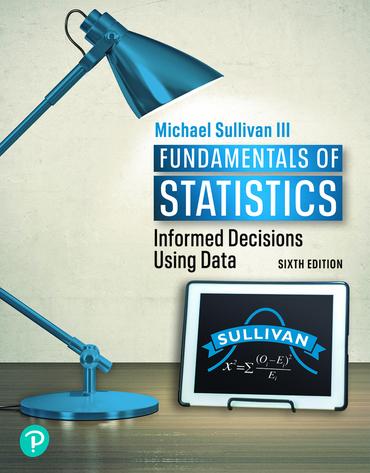When the area of the brain responsible for vision is destroyed, individuals experience cortical blindness. Patients with
Question:
When the area of the brain responsible for vision is destroyed, individuals experience cortical blindness. Patients with cortical blindness are unaware of any visual stimulus, including light. In a 52-year-old male patient with cortical blindness (as a result of two strokes within a 38-day timeframe), a series of visual stimuli were presented on a computer screen. The patient was given two choices for each stimulus and asked to report what was on the screen. The patient’s responses were recorded by an individual behind the screen who could not see the contents on the screen.
(a) An initial baseline test was conducted by presenting black squares and circles on the white background of the screen. The patient correctly “guessed” the item on the screen in 90 of the 200 trials. Researchers concluded the patient’s performance was not statistically different from chance. Explain what this means using the language of hypothesis testing.
(b) Researchers then presented the patient with a randomized series of pictures depicting angry and happy faces. The patient was asked to report the emotion shown on the face. The patient answered correctly in 118 of 200 trials. Do these results suggest the patient’s performance is statistically different from chance? If the results are statistically different from chance, construct a 95% confidence interval to estimate the proportion of correct answers.
(c) The researchers wanted to determine if the patient could identify other facial characteristics. They randomly showed male or female faces and asked the patient to identify the gender. The patient was correct in 89 of 200 trials. What does this suggest?
Step by Step Answer:






